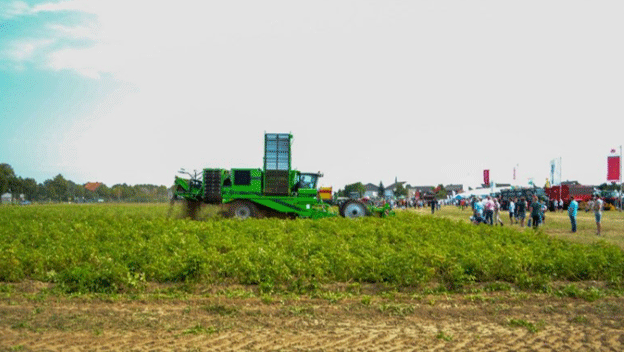Money Fuels Expansion in European Potato Farming: The Rising Demand and Investment Surge
With global demand for potato products on the rise, the European potato industry is experiencing a surge of investment aimed at expanding production and processing capabilities. According to Ferdi Buffen, Director of the German potato trading house Weuthen, money acts as a powerful magnet, attracting farmers to increase their potato cultivation. Weuthen, a leading supplier of over 2.3 million tons of potatoes annually, exemplifies this trend.
Investment and Expansion in the Industry
The European potato sector is booming, with investment in new factories driven by a consistent 4% annual increase in demand for potato products. Belgium has seen significant growth in processing capacity, though last year’s extreme weather disrupted expected increases. Despite this setback, processing capacity is expected to recover and expand in the coming seasons.
The investment wave has now moved to North-West France, where a substantial increase in potato acreage is anticipated. This expansion is crucial for meeting the growing demand from processors who need a steady supply of raw materials to operate efficiently. As processors face stagnating yields per hectare, they rely more on increasing acreage to fulfill their needs.
Market Dynamics and Farmer Incentives
In response to the increasing demand, potato farmers are expanding their cultivation areas, encouraged by higher contract prices offered by processors. This year, the potato area in the EU-4 countries has grown by an average of 6%. Looking ahead, further expansion is expected, particularly in France and Germany, which have more available space for cultivation compared to the more saturated markets of the Netherlands and Belgium.
Buffen predicts that by 2035, an additional 50,000 hectares of potato fields will be required to meet demand. While the Netherlands and Belgium are already importing potatoes due to higher processing demands, France and Germany are poised to increase their production. This potential for growth is driven by attractive contract offers that make expanding acreage financially appealing to farmers.
Global Competition and Future Outlook
As the global market for potato products becomes increasingly competitive, European industries must remain vigilant. Countries such as China, India, and South America are building their own processing facilities, which will add to the global supply and competition. To stay competitive, the European industry must work collaboratively rather than against each other.
Despite the recent spike in prices and subsequent missed market opportunities, European processors are facing a challenging market for ready-to-eat products. The industry needs to recover and capture customers to fully utilize their processing lines and remain viable in a shifting global landscape.
The surge in investment and expansion within the European potato industry underscores the growing global demand for potato products. With financial incentives driving farmers to expand cultivation and processors ramping up capacity, the industry is poised for significant growth. However, staying competitive will require strategic collaboration and adaptation to global market changes.







